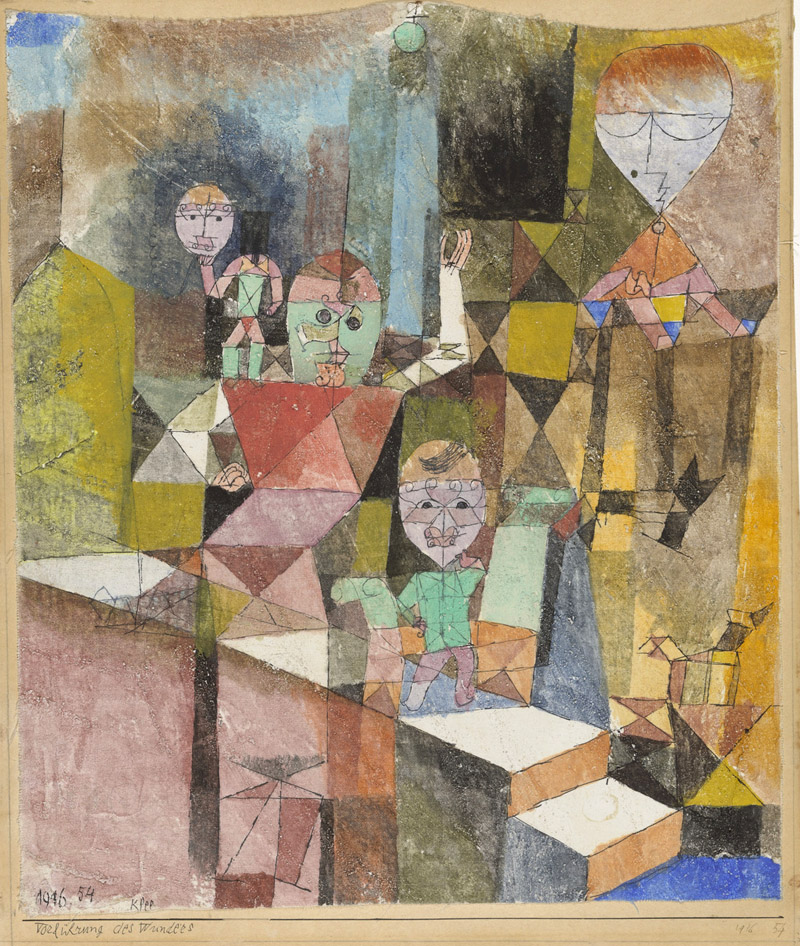The Coming AI Catastrophe
by John Henry (March 2024)

For your information, most of the writing here was not generated by AI gobbledygook. And Arnold is not coming back. It won’t be worldwide genocide by machines. It will be economic collapse and people hunting people in an apocalyptic scenario caused by artificial intelligence being adopted by every business in the world.
We have tacitly accepted AI as a means towards progress. The ends of that progress do not look very good right now.
More and more of my feeds are filled with misspelled words and syntax issues. In fact, newer scrapes by algorithms across our current media by AI large language models will pick up these errors and perpetuate them into the English language as if normal and correct.
Current AI took in most of humanity’s written words and chronicled the history of mankind (ok, womankind too) to 2022.
 A few months ago, I remarked at the amazing transformation of an image of Keanu Reeves into a Renaissance painting. Then all of a sudden, deep fakes were showing up. In particular, one of Tom Cruise was spot on. It then became clear that bad actors could use this tech for nefarious reasons.
A few months ago, I remarked at the amazing transformation of an image of Keanu Reeves into a Renaissance painting. Then all of a sudden, deep fakes were showing up. In particular, one of Tom Cruise was spot on. It then became clear that bad actors could use this tech for nefarious reasons.
A few weeks later, it was reported that a computer could analyze a few minutes—now seconds—of your voice print and derive a complete vocabulary with inflections in order to duplicate you. AI can duplicate your voice, face, and motions.
With a few prompts AI can now:
- Create a website, complete with images and commerce ability.
- Create any image you can conjure with words alone.
- Create animated ‘friends’ who can respond to your personality and whims.
- Create motion from a still image.
- Take existing video and transform it into something else.
- Create a full video based on stock footage and just a few prompts.
- Create a full-length movie based on a thin script idea that has been bolstered by ChatGPT or similar system.
Here is how AI itself explained what AI can do for humanity (based on a question asked to ChatGPT 3.5):
As of my last update in January 2022, AI capabilities have been continuously evolving, driven by advancements in machine learning, natural language processing, computer vision, robotics, and other fields. Here are some of the things AI is capable of doing:
Natural Language Processing (NLP):
-
- AI can understand and generate human-like text, enabling applications such as chatbots, language translation, sentiment analysis, and text summarization.
- It can also perform more advanced tasks like text classification, named entity recognition, and question answering.
Computer Vision:
-
- AI algorithms can analyze and interpret visual data, enabling applications such as image recognition, object detection, facial recognition, and image generation.
- It’s being used in various industries for tasks like quality control in manufacturing, surveillance, medical image analysis, and autonomous vehicles.
Speech Recognition and Synthesis:
-
- AI can transcribe spoken language into text and vice versa with high accuracy, enabling applications such as virtual assistants (e.g., Siri, Alexa), dictation software, and voice-controlled devices.
Recommendation Systems:
-
- AI algorithms can analyze user preferences and behavior to make personalized recommendations, which are widely used in e-commerce platforms, streaming services, social media, and content platforms.
Autonomous Systems:
-
- AI is used in autonomous vehicles for navigation, object detection, and decision-making.
- It’s also employed in drones for tasks like surveillance, delivery, and agriculture.
Healthcare:
-
- AI is being utilized for medical image analysis, disease diagnosis, drug discovery, personalized treatment planning, and patient monitoring.
- It’s also used in health informatics for managing medical records and optimizing healthcare operations.
Finance:
-
- AI is used for fraud detection, algorithmic trading, risk assessment, credit scoring, and personalized financial services.
Creative Applications:
-
- AI is capable of generating music, art, and literature. It’s used in creative industries for tasks like music composition, image style transfer, and generating content.
Gaming:
-
- AI algorithms can play complex games at human or superhuman levels, as seen in games like chess, Go, and video games.
Robotics:
-
- AI is integral to robotics for tasks like autonomous navigation, object manipulation, and human-robot interaction.
This new technology is moving us ahead at a pace that has not been seen by any advance in automation, production, or knowledge accumulation to date. In fact, it will completely disrupt any economic model in place today.
Three months ago, it was debated how AI would actually make things more efficient; perhaps eliminate dull and boring, repetitive work and free us to do more creative and ingenious things or make us more productive.
The fear was always an Armageddon led by errant machines.
However, it looks like what will happen is the elimination of entire jobs, work profiles, and millions of people who presently work in office-type environments who rely on computers to make their tasks efficient and timely.
Te computer is basically going to make us extinct. The tool that was promised to save us 25 or 30 years ago is going to write our pink slips.
Remember this? In the late 90s through the year 2000, people thought that the arrival of the internet was the end of the world. People believed they would be outmatched, out of jobs or that the world and economy would collapse as they knew it.
If you asked someone then for their advice on picking a major or a future career, you might have gotten answers from “get a job in computers—it’s the future” to “call it quits, everything is going to change anyway.”
This wasn’t the last time people made grim predictions in the face of a new technology. The consensus of popular opinion is that the future is bleak. The International Monetary Fund (IMF) found that 60% of U.S. jobs will be exposed to AI and half of those jobs will be negatively affected by it.
Who will be marginalized (euphemism)?
First: advertising agencies, script writers, copy writers, editors, book publishers, all writers, clothing and fashion models, commercial artists, etc. Then: those who perform data entry and administrative tasks, document processing and management, customer support and service, financial analysis and reporting, recruitment and HR tasks, translation services, basic legal research, inventory management and supply chain operations, routine data analysis and reporting, and routine maintenance and repetitive tasks.
ChatGPT3.5 makes us feel warm and fuzzy though when it concludes:
It’s important to note that while AI can automate certain tasks and procedures, it often complements human work rather than completely replace it. Additionally, the adoption of AI may lead to the creation of new job roles that leverage AI technologies or require human oversight of AI systems. Adaptation and upskilling will be crucial for individuals whose roles are impacted by AI automation.
Of course I don’t believe this.
Let’s look at the motion picture industry in California and make a prediction about real estate values there.
Check out the new Sora AI tool, announced four days ago. While capable of creating over a minute of total fiction with a paragraph of prompting, this system will be bolstered with additional computing power to such a degree that it will create something out of nothing (an entire motion picture from beginning to end) within an hour, eventually—completely eliminating the entire movie industry players: investors, actors, producers, cinematographers, grips, set designers, wardrobe experts, animators, voice actors, CGI techs, assistants, secretaries, accountants, wannabes, and prostitutes—to name a few.
On top of that, all support of this industry will be eliminated: studio space, vendors for material and food, limo companies, couriers, need for power, requirements for office space, etc.
A $100 million single film production will be developed by a very small group of prompters—and individual wildcatters on their laptops—who will create an entire commercial film for less than $5,000. You will able to do this while lounging in your bathrobe.
Tyler Perry‘s planned $800 million studio expansion in Atlanta has been put on the back burner due to his growing concerns over developments in artificial intelligence.
In an interview with The Hollywood Reporter published on Thursday, Perry expressed a need for the industry to get ahead of AI’s potential impact, saying, “There’s got to be some sort of regulations in order to protect us. If not, I just don’t see how we survive.”
He went on to specifically cite OpenAI‘s text-to-video tool Sora as the impetus for the expansion stoppage. “I have been watching AI very closely and watching the advancements very closely. I was in the middle of, and have been planning for the last four years, about an $800 million expansion at the studio, which would’ve increased the backlot a tremendous size, we were adding 12 more soundstages. All of that is currently and indefinitely on hold because of Sora and what I’m seeing.”
You can see how technology tends to deflate value. It destroys it. No one will need to live in Los Angeles. Movie producers will begin by animating characters whose estates sell image rights. There is an upcoming James Dean flick using AI. Harrison Ford got a makeover in the last Indy picture.

People in this industry will not be able to afford their houses, cars, food, entertainment, insurance, and children’s education. They will start selling their houses and cause that market to completely collapse.
But it won’t just be in LA and California. It will be a ripple effect of a magnitude unknown to this point in time.
Those in lower and mid-level positions—all over the country—in finance, education, medicine, engineering, accounting, and other fields crunching numbers and in administration, will find their positions whittled away.
The end result is a country with over a hundred million able-bodied trained professionals suddenly out of work.
Henry Ford remarked that one of his goals was to make his production cars (before the line, cars were hand built one by one) affordable to those he employed.
The irony is that the technology we have all (been made) to embrace, will price us out of our way of life. Think about it.
At this rate, AI will eliminate entire classes of workers with college educations and years of training. In fact, college admissions are down and students have no idea what a real future will mean for them. They are afraid to make a career decision.
Companies are not offering pensions anymore. Gen Z and those back to the Baby Boomers will not have any income to rely on when they retire and must depend on their savings and continued earnings to stay alive.
This leads us to consider at best Universal Base Income (UBI) or a complete surrender to communist and socialist thinking.
When a country’s infrastructure and GDP/GNP becomes so efficient and labor reducing that it doesn’t need to employ millions who previously created those goods and services, a full-on depression becomes the freight train heading to you in the tunnel.
Technology is not going to be our friend. Think of third world countries who will use this easy tech to compete even more effectively with us. It is a worldwide disaster about to happen.
In the Matrix movie, the only way to stop the tech takeover was to induce a cataclysmic cloud over the earth so that it would eliminate the power (coming from the sun) to the machines, which were in total control.
Likewise, pulling the energy plug means that AI cannot be ably generated for use. Is it time to reconsider the Luddite philosophy?
 Agrarianism is quite safe. Starting a commune now might be an idea. Buy seeds and plant some crops, learn how to sew, etc.
Agrarianism is quite safe. Starting a commune now might be an idea. Buy seeds and plant some crops, learn how to sew, etc.
I have been creating unbelievable AI images that take 20 seconds for four to appear. After a few hours and hundreds of images later, I concluded that it would take 10,000 years to duplicate the production of that AI image generator. The detail is so amazing that it blows me away at times—all with minimal prompting.
I am sure the architecture industry is going to be infected once again with a pernicious AI. CAD being the first destroyer of the eye-mind-hand coordination that produced the pyramids, Parthenon, Eiffel Tower, Twin Towers, Versailles, and many other irreproducible monuments.
AI cannot write a joke or make a melody stick. Those left to market services are stand-up comedians and musicians … unless you make a move into the energy industry—which ultimately is in control of everything.
Table of Contents
Follow NER on Twitter @NERIconoclast